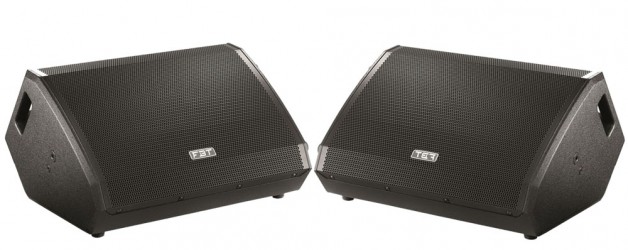The common production issue musicians encounter during concerts and why it’s a travesty.
Stage Monitor Mixes
Before we get started here I want to clarify that I am using the terms “production crew” and “engineer” interchangeably. Some venues offer a single engineer who runs all details of production for the show. Other venues and events will have crews made up of as many as ten or more people.
Here we go!
What is most important? The main PA mix for the audience, or the monitor mix for the band? That is a question that so many engineers seem to need to ask themselves. There is however only one correct answer. BOTH! One of the most common complaints we get from bands, promoters, and venues who come to us hoping to find a solution to their production woes is that there is commonly feedback from the stage monitors and/or that the performers regularly say that they can not hear themselves well enough to allow them to put on their best performances.
Imagine hiring a painter to come to your house to paint your kitchen. They show up with the best paint they can find. They have practiced their skill of painting for years. They know what colors are going to go where. They have put a lot of thought into this day’s work. By being there, they are potentially making you money by increasing the resale value of your home. You will both benefit from a great paint job. They show up on time, take out all of their equipment, and right before they are about to start painting, YOU TURN OFF THE LIGHTS. There your painter stands, in the dark, at your mercy because you control the light switch. They have been hired to give you a great paint job, but you just took away their ability to do their best work. That is the equivalent of giving musicians bad monitor mixes.
There was a time not so long ago when sub-par stage monitor mixes at smaller shows could be somewhat explained by a simple lack of tools to do the job right. Before digital mixers, smaller events that did not allow for a separate monitor mix console and engineer were very limited to what they could offer their performers for sound on stage. Those days however are long gone and feedback from stage monitors is a pretty sure sign that whoever is mixing your show either didn’t take the time to prepare properly, doesn’t know how to use today’s digital mixers properly, or as we find is so often the case, they simply just don’t care enough to do what is required.
There is quite honestly no reason to have feedback in a modern concert with modern equipment. Every digital mixing console comes with the tools required to completely “ring out” feedback, except in the most extreme conditions. Furthermore, the ONLY limiting factor for getting max volume from a given stage monitor should be the monitor’s power and sound capability. Almost every modern stage monitor should be loud enough to give musicians what they need to hear themselves clearly. Of course the higher quality of the monitor, the better the potential sound for the musicians on stage. But, even an inexpensive monitor should be able to get the job done as long as you have a sound engineer who is willing to take the needed steps and work with the band to create the best possible outcome.
What does every musician want when performing? They want a clear, present, balanced monitor mix that allows them to hear every detail that they require to perform their very best. They want a mix that will give them minimal ear fatigue. They want an engineer who is paying attention and is ready to make any needed changes immediately on the fly at the exact moment that the given musician alerts them.
What many seem not to understand is that much of what is required to give bands a great monitor mix must happen before the concert and even before the soundcheck ever begins. So, what must happen? When should it happen? We have found that many of the production failures that occur during live events are usually the result of the production crew not doing their homework and preparation at the appropriate time. For the crew who are going to be mixing a given show, the work begins when the tech advance is being done. A tech advance is the communication that is supposed to occur well before the day of the concert, where the production crew discusses with the band all of the details about the event. This is when the crew confirms how many members are in the band, what instruments they will be playing, how many monitors or in-ear monitors (IEMs) will be needed, how many channels and microphones will be required, and the specifics of those channels and microphones. This is when the expectations of both the band and the crew are discussed and agreed upon. This is also when load-in times and the schedule for the soundcheck, performances, and load-out are confirmed.
So often we hear complaints that bands are booked and then they never hear from anyone at the venue or production crew until they arrive on the day of the event. This is a recipe for chaos and even disaster. Nothing is worse for bands than arriving at a load-in and the stage is not set up, the monitors are not placed, the mics are not generally ready to be placed or the engineer knows nothing about what the band needs or expects. To make things worse, very often there is limited time for setup and sound-check, and so with no time to get things dialed in correctly, everyone has to sacrifice with sub-par monitor mixes, a less than optimal front of house mix for the audience, and the show is treated almost like a Hail-Mary where everyone hopes it will work out. Bands and engineers are left having to put up with issues because there is no time to make things right and the crew is simply waiting for the show to be over.
This scenario can easily lead to tension between the band and the production crew. That tension can affect the performance of the band, it can affect the quality of work that the crew is putting forth thereby affecting the experience of the audience. So often I hear from bands and production people that they feel like each are on opposing teams. This is NOT how this is supposed to be. This does NOT lead to the best possible show. This is NOT how venues, promoters, and bands flourish. The band and the production crew are supposed to work together synergistically and do whatever is required to put on the best show for the audience.
Musicians work countless hours to master their craft. They spend an incredible amount of time and money to develop their best tones, techniques, and arrangements. To me, it is completely unacceptable for an engineer to dismiss this reality and just “wing it” with a musician’s life’s work. To me, there is no greater offense by a sound engineer to an artist than disrespecting the investment that they have made to put on their best performance. Being completely organized and prepared is the least that a production crew can do when hosting a band on their stage. Bands also need to do their homework and be prepared to make the crew’s job as easy as possible. More on that in the future.
Some describe live sound as organized chaos. I believe that is completely wrong. For a concert to run smoothly, everyone needs to do their homework in advance. There should be nothing chaotic about it. In fact, it’s quite the opposite. A properly run concert should be smooth and enjoyable for everyone involved. I mean, isn’t that why we got into this to begin with?
Stan Denis
Sound Engineer/President
Denis Entertainment Group


I am looking forward to reading your posts.